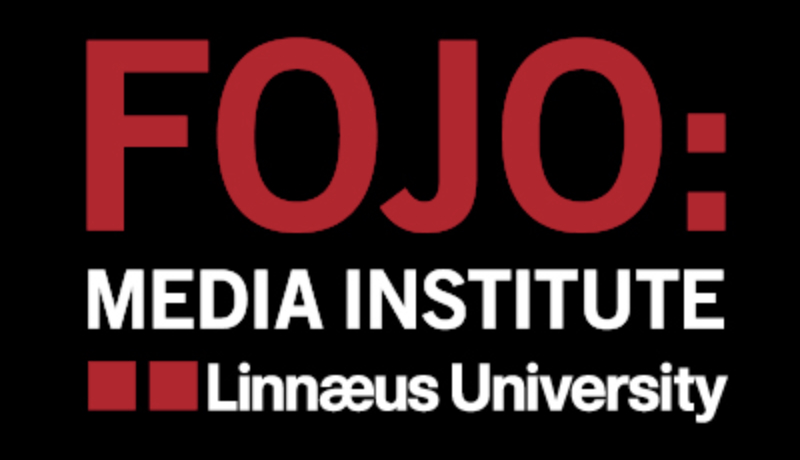
Media Helping Media is hosted by the Fojo Media Institute and is one of its official training resources.
From our BASIC JOURNALISM section
Language and style – the basics
This training module from The News Manual looks at language and style in news writing. It offers guidance on how to write sentences for maximum understanding, and examines why care over language is important.
Developing and applying “news sense”
How do we know what is “news”? There are millions of things going on in the world all the time and only some of them become news stories.
From our EDITORIAL ETHICS section
Fairness in journalism
Fairness in journalism means exploring all sides of an issue and reporting the findings accurately. Members of the public should never be used to exaggerate the importance of a story.
Respecting privacy as a journalist
Journalists face a difficult balancing act. They must respect privacy, but they must also be rigorous and robust in their investigation into issues that are in the public interest.
From our ADVANCED JOURNALISM section
Information disorder – the essential glossary
For the policy-makers, technology companies, politicians, journalists, librarians, educators, academics, and civil society organisations all facing the challenges of information disorder, agreeing to a shared vocabulary is essential.
Editing audio for radio news
We edit audio because we do not always have the time on air to broadcast a whole interview, but it's important we do it well.
 Unfortunately, Facebook has decided to disable our Media Helping Media Facebook group. Our Facebook page is still live.
Unfortunately, Facebook has decided to disable our Media Helping Media Facebook group. Our Facebook page is still live.
 Do you have any wisdom to share with those without access to formal training? If so please get in touch.
Do you have any wisdom to share with those without access to formal training? If so please get in touch.
 Media Helping Media (MHM) provides free training resources for those starting off in journalism. Read more …
Media Helping Media (MHM) provides free training resources for those starting off in journalism. Read more …
 The content on Media Helping Media (MHM) is released via Creative Commons BY NC SA 4.0. Please read the MHM copyright terms.
The content on Media Helping Media (MHM) is released via Creative Commons BY NC SA 4.0. Please read the MHM copyright terms.
Tips for investigative journalism
The following are some of the points from a training session given by Marcus Tanner to the Balkan Fellowship for Journalistic Excellence setting out how to produce a piece of investigative journalism.
The mindset for investigative journalism
The investigative mindset is responsible for solving more information mysteries than probably any other factor. If you haven’t started writing down your best strategies now might be the time to start.
How to investigate official documents
The investigative journalist never takes things at face value. They probe and question in order to get to the truth. If you are to uncover the story you need to keep asking questions.
Prioritising production with the content value matrix
How to prioritise newsroom effort
There are many demands on a newsroom. There is the routine flow of news releases and stage-managed events that need to...
Newsgathering tips for producing great content
The newsgathering process involves sourcing ideas, planning coverage, assigning teams, structuring packages, monitoring the web, working in the field - and coming back alive and well.
The important role of the news producer
The news producer has an essential role to play in any news organisation. Their job is to add depth to the content being produced, make sure it is well-researched and oversee quality control.
Content sharing for the benefit of all
Small news organisations, eager to offer their audience a wider choice of news, can now take advantage of a free international wires service currently syndicating in 90 languages.
Establishing a market differential with original journalism
This module is about producing original, in-depth, issue-led journalism designed to inform the public debate and meet the needs of your target audience while giving you a market differential.
Creating a converged news operation
A converged news operation offers improved quality control, more efficient workflows, cost savings, a steady flow of original journalism across all devices, and new resulting business opportunities.
Privacy protection – scenario
You are working on the online news desk of a large media organisation. News breaks of fighting overseas. Raw footage arrives showing identifiable dead bodies. What do you do?
Right of reply – scenario
Try our right of reply scenario where you are the editor of a morning radio news and current affairs programme and just before the bulletin you receive conflicting information that is too late to fact-check.
Transparency and full disclosure – scenario
Try our editorial scenario in which a radio reporter hears supposedly conflicting information during an organised media trip, and has to decide which material best represents the facts for their news broadcast.
How to design a successful media training plan
A well-designed media training plan could make the difference between the success and the failure of a media business. Get it wrong and you could be adding to the problems you were asked to address.
Evaluating the impact of training
The evaluation process at the end of a media training session begins the moment you are engaged by the media organisation you are being asked to help because this is when you know the expectations and deliverables.
Maximising the impact of media training
Thorough research is the essential if you are to deliver high-impact media training. Never accept a brief from media managers without question - they could be wrong and often are.




